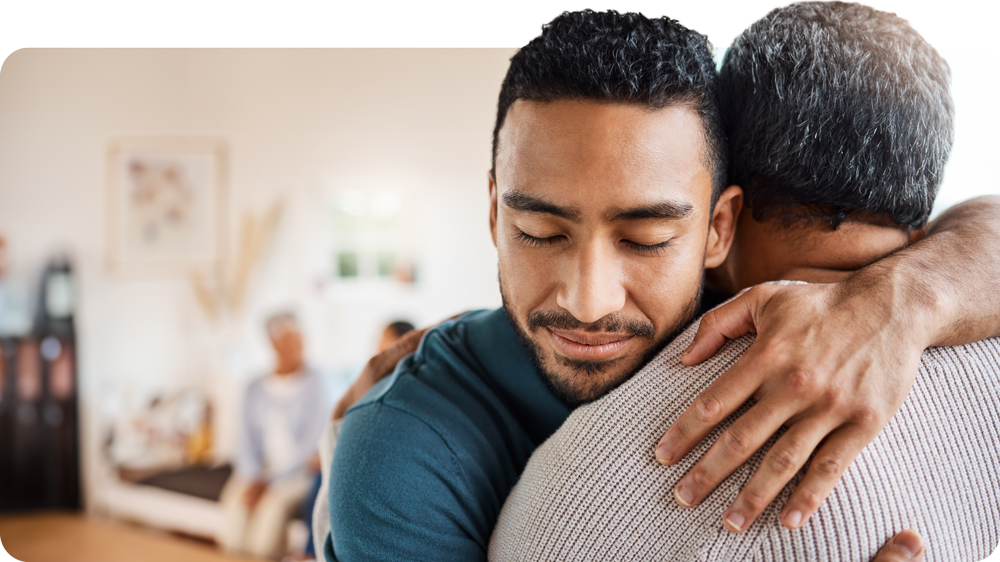Tips to help you support
The most important thing you can do is to listen without judging and respect their decisions. If people have experienced emotional or psychological abuse and coercive control, then they may have forgotten how to make decisions on their own and need confidence to believe in themselves.
Here are some tips to help you support your friend or relative.
- Listen to what they say.
- Believe what you’re told and take it seriously.
- Tell your friend or relative that they’re brave in speaking, try and instil confidence.
- Help them understand that the abuse is not their fault.
- Help them think about what they can do.
- Offer practical assistance like looking after any children or pets or offering to help take them to appointments.
- Keep in regular contact with them.
Remember that ending a relationship with an abusive partner or adult family member is an extremely difficult decision to make and it may take the person who is being abused some time to decide to do this and to work out how to do it safely. Ending and leaving the relationship can increase the risk that the person will be harmed.
When they are ready to end the relationship, use this guidance:
Leaving home
If they are going to leave their home, encourage them to pack an emergency bag and to hide this in a safe place in case they need to leave quickly. Useful things to put in the bag include important documents such as passports and birth certificates, spare keys to their home or car, money, medications, some clothes and a few of the children’s favourite toys.
Exit plan
Help them to work out a plan for leaving including who they can call, where they might go, and how they can get there. It can be difficult to think about these things quickly, so helping the person to plan in advance is important.
Code words
Agree a code word with the person so they can signal to you if they are in danger or distressed and need you to access urgent help on their behalf.
Updating contact details
If they have left the relationship, the person may need to change their contact details and think carefully about who they share them with, because some of the people they know will also know the abuser and may not keep this information secret.
Never discuss the situation with the person causing harm.
However much you think it may help, it could make things worse for your friend or relative. It could even make things bad for you. Mediation and counselling are never advised in domestic abuse, due to the power, control, coercion and manipulation that occurs.
You can read more on the what you can do to help page.
Reporting domestic abuse
It can be daunting and a huge responsibility to help someone who is living with domestic abuse. If you are unsure what to do, then you can contact the local Somerset Integrated Domestic Abuse Service on 0800 69 49 999 for advice or email domesticabuseservice@somerset.gov.uk.
Remember domestic abuse is a crime. So you can report domestic abuse anonymously to Crimestoppers on 0800 555 111 or visit their website. There are also other domestic abuse helplines and support services you can get advice from to help you manage your own emotions in helping your friend or relative. You can find some links to these in our directory of Domestic Abuse Support Services.
Guidance to support you
If you are worried that a friend, neighbour or loved one is a victim of domestic abuse, you can call the National Domestic Abuse Helpline for free and confidential advice, 24 hours a day on 0808 2000 247.

